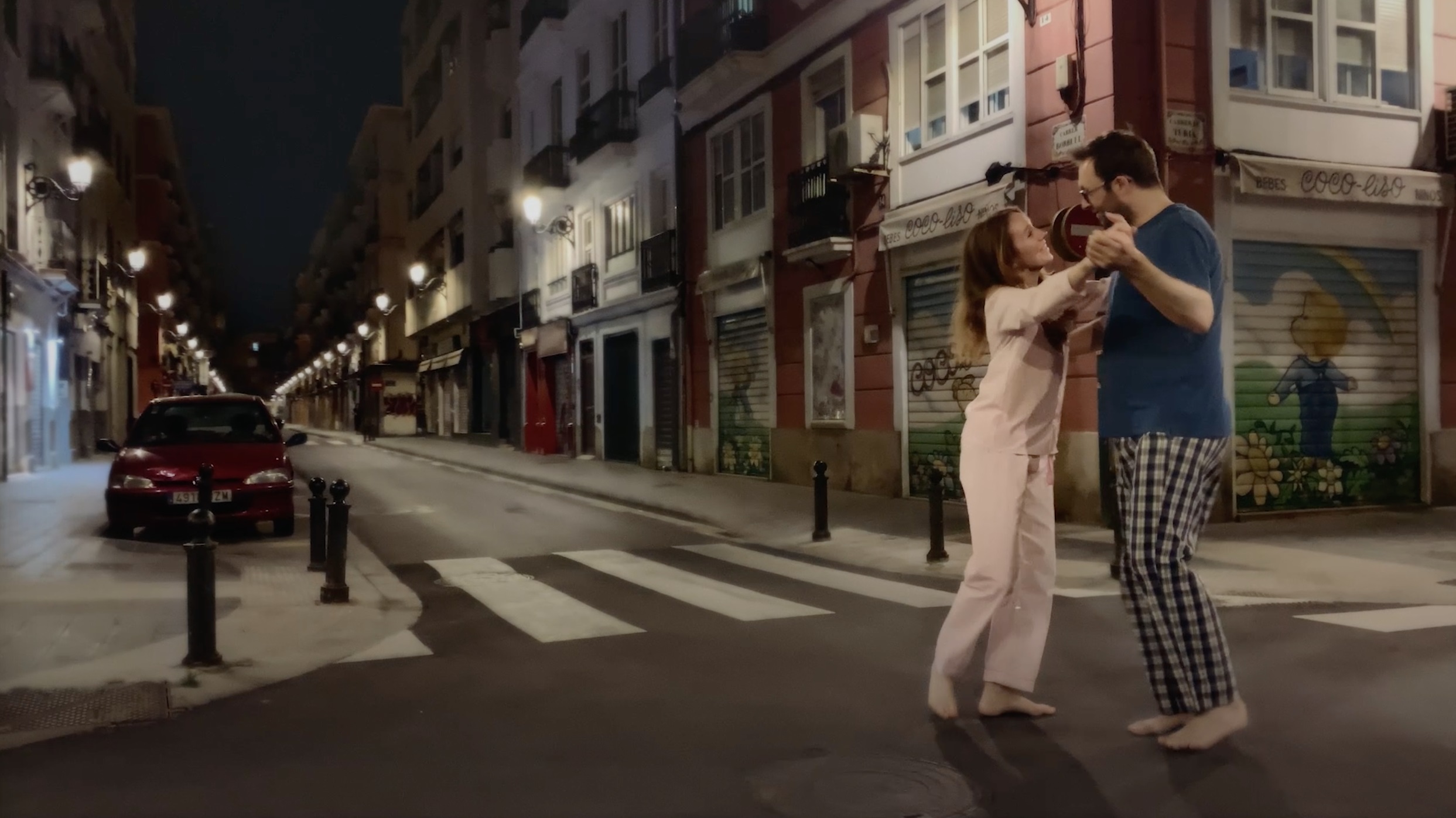
A very personal story that somehow touches us all, gets told touching and with a lot of humor. The webseries also convinces with its acting performance and cast ensemble. Cancelled therefore got nominated at die Seriale for Best Screenplay and Best ensemble Cast. Maria Albiñana, who is a spanish actress, writer and producer was awarded for the best actor in 2020 and the series for the best script 2020 at the British Web Awards. She has an MA degree in Acting and gained a lot of experience, working over 11 years for TV-shows, movies, and theatre. Maria is a director and co-founder of the webseries section at the Cinema Jove Film festival in Valencia.
Her partner Luke Eve is an Australian screen director and producer, who started as a photographer. His series High Life has won over 30 major awards. For Cancelled he won the award for the best director 2020 at the nzWebfest. Both were willing to give us an interview about Cancelled.
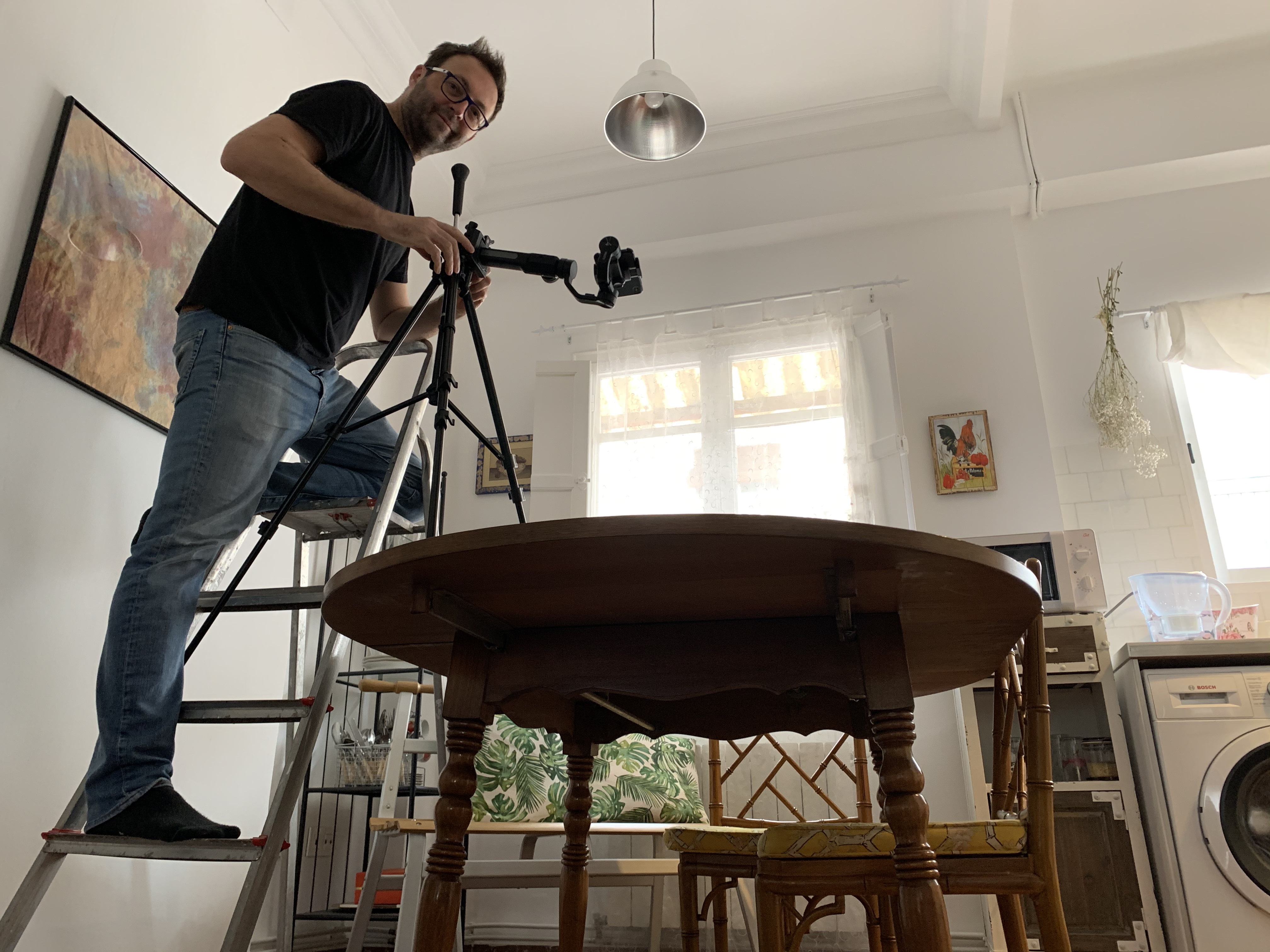
die Seriale: Dear Luke and Maria: Your series on the one hand deals with a very personal story (cancelling your wedding) and on the other hand with something, that we all have had to deal with (the pandemic). How did it come to your mind to make a series out of this situation and what intention did you had?
Luke Eve: We had travelled to Spain for the wedding. And two days before the wedding, the pandemic sort of ramped up. Only 12 hours after we made the decision to cancel the wedding, the government entered us into a lockdown. Like everybody else we were just confused.
Maria and I both ended up just doing things that after a couple of weeks were keeping us sort of sane. For Maria that was doing exercise and I started getting back into work. I was having a meeting with Screen Australia where I made a joke about making a show about the pandemic.
Then I thought about it and said to Maria: “Actually, that’s not a bad idea, right?”.
Maria Albiñana: Of course, I did not say no to it.
Luke Eve: We started playing around with ideas and were like “Well I’m a director, Maria is an actress. My mum’s here, we could get her involved. We have a mobile phone. Why don’t we?” So I quickly emailed screen Australia and they wrote straight back and were really interested about the idea. The next day they unofficially came on board and lwithin two weeks we were filming.
I was very passionate about. I thought if the show was going to strike a chord with people who were in the lockdown, then we needed to make it and get it out quickly, so that they could connect to it. We wrote all the scripts within 8 days. It was insane but I think it was a nice way for us to be able to process something that was very personal but also reflect on something that was universal.
die Seriale: So, you basically did something pretty good out of a bad situation.
Luke Eve: The aspect that we loved the most was that people really connected with it all around the world. We would literally get hundreds of messages from people saying that: “wow, it was like watching our own lives reflected”.
die Seriale: Was that one of the reasons why you choose to publish the series on Facebook as a web series? Did you think that you could deal with the topic Corona and the whole situation better in a web series on Facebook than on television?
Luke Eve: The problem with networks was that they move very slowly. It’s just a bit of a slow machine. Whereas like I said, we felt like we really needed to get it out there in the moment. It was hard because we had potential money there from a network, but for the show to really work we need to move beyond that so we kind of said no to that and realized that releasing it on a free platform was the way to go. So it probably did cost us money in a way, but that way it found the biggest audience.
Maria Albiñana: On Facebook we had much more control and we were able to communicate with fans in a direct way. It was us answering to them on the spot, which made it even more personal and connectable for fans.
Luke Eve: We also looked at other platforms like YouTube. But we knew that our audience was probably a little bit older because we’re a bit older and the story was about us. YouTube often plays a little bit younger, so we thought that Facebook was the right platform for the audience. Facebook is such a social media hub, it allowed people to share it and to pass it on to friends and Family. Like Maria said, the engagement was probably the biggest thing for its growth.
die Seriale: Maria also said that it was a pretty personal thing, so talking about that die Seriale also nominated you for best ensemble cast and best screenplay. Your cast was comparably small and with a personal relationship. Could you speak of a family production in a way?
Maria Albiñana: Even though it was our story and our names and home we were looking at it in a very professional way.
Luke Eve: Having worked in production for many years I can’t work any other way. I guess it’s just a way you’re trained. We even did script readings. We were filming during the day in the evening I was doing postproduction with the sound team back in Sydney and the editor in LA. Maria was doing a lot of media, it was this machine. Whatever we could do to keep it professional, we did.
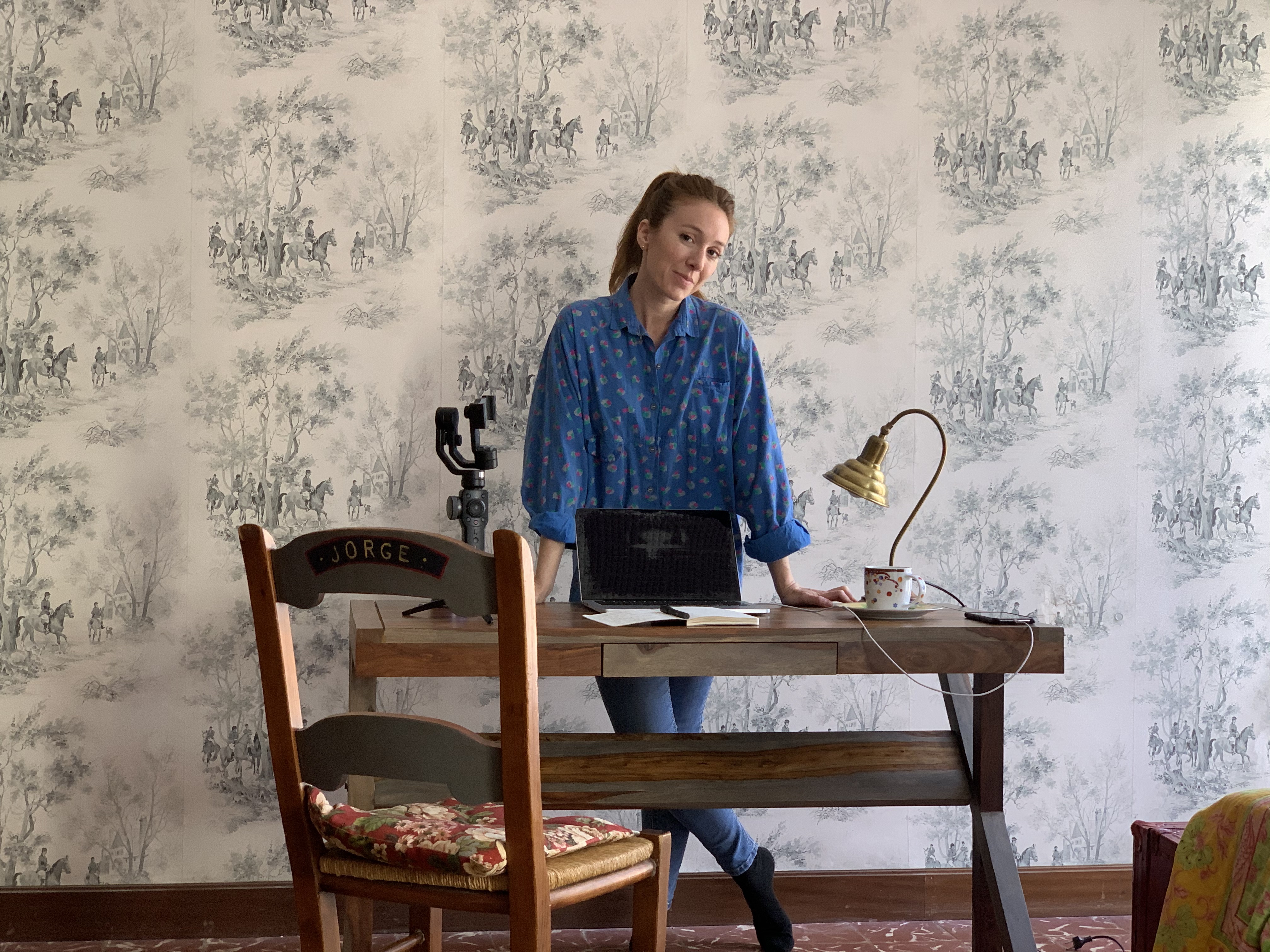
Maria Albiñana: I guess the work that 50 people should be doing was just in between you and me. So that made it very tough and sometimes big chaotic because of time. Days do not have 48 hours; they only have 24 and it was only us who were trying to make it perfect.
Our set is our house, so we were living in our set which made it even tougher. We were trying to do daily stuff and then we were shooting. It was very intense.
die Seriale: The result seems to pay for it. The series on the one hand looks pretty professional, but on the other hand pretty close to your life.
Luke Eve: We loved the kind of dialogue about. Was it scripted? Was it reality? Somebody called it a docu drama, which I was kind of amazed by but loved. We did want to make something that was very personal, but we also wanted to script it. I think sometimes people forget that it is written and just go: “oh just two people. Kind of playing themselves.”
Maria Albiñana: Or: “oh, it’s just two people with an iPhone just recording” people don’t know the amount of work that that takes. That series is completely orchestrated, it´s not just plunking the phone in a corner and just us wandering around the house and having an amazing conversation. We are just normal people that sometimes have boring lives.
Luke Eve: In the series are bits that are sort of fictionalized and others that are restructured according to our normal lives. I was trying to strike that balance. The mobile phone helped because it is kind of intimate. It is also kind of Lo-Fi but we were trying to use it in a way that felt like it had production values at the same time. I guess with a photographic background and as a filmmaker I wanted it to look and sound as good as we could get it, but I think the phone made it feel authentic.
die Seriale: Now that we talked about the mobile phone, how difficult in practical, technical way and also in a more emotional way, was it to shoot during the pandemic?
Maria Albiñana: It was a turmoil of emotions. Everything was happening at the same time: We cancelled the wedding, and we didn’t know what was going on. Then the whole country went into lockdown. Everyone was very confused. We didn’t know what to do with Karen either. Then we decided to do a series which was even more confusing. It was a beautiful time, but it was stressful. I still have a feeling like if I had dreamt all of this.
Luke Eve: The making of it happened so quickly. We didn’t really have time to think about what had happened or to process the sadness of cancelling the wedding. At the same time there was so much sadness going on in the world, that it just didn’t feel right to be complaining about cancelling a wedding. In the big scheme of things, it was not a big deal. So, we told ourselves to move on. It wasn’t until we would be on set and acted out the things that we had written that we started processing everything. I remember feeling really emotional as we were filming certain scenes that, even though they were scripted, were based on something real. It was a weird way of dealing with the process.
die Seriale: What fits quite well to that situation was a quote that you choose to put on episode 2, which you could hear on the TV. It said: “Circumstances that have put us on trial as a society and also individually – We´ve changed the importance of what we value”. Do you think that this quote somehow verified for you?
Luke Eve: Definitely. I think one of the overriding messages of the show is about it. This is going to sound Really weird, but there was a part of me that kind of liked the lock down. That part enjoyed the opportunity to take a moment out and to reflect, while not having to stress about work or the next project. There was something weird about being able to take a step back and think about who we are as people and what we value. I remembered connecting with people from around the world that I hadn’t spoken to in a while. It made me really think about what was really important in life. Way back when the whole world was locked down, there was something that the entire world was experiencing, and everyone was in it together. People were connected in that way. I found that quite profound in a sense. The series really is about it and about what is important in life. Going off and being successful at work at the end of the day, is maybe not as important as family, and being around those who you love.
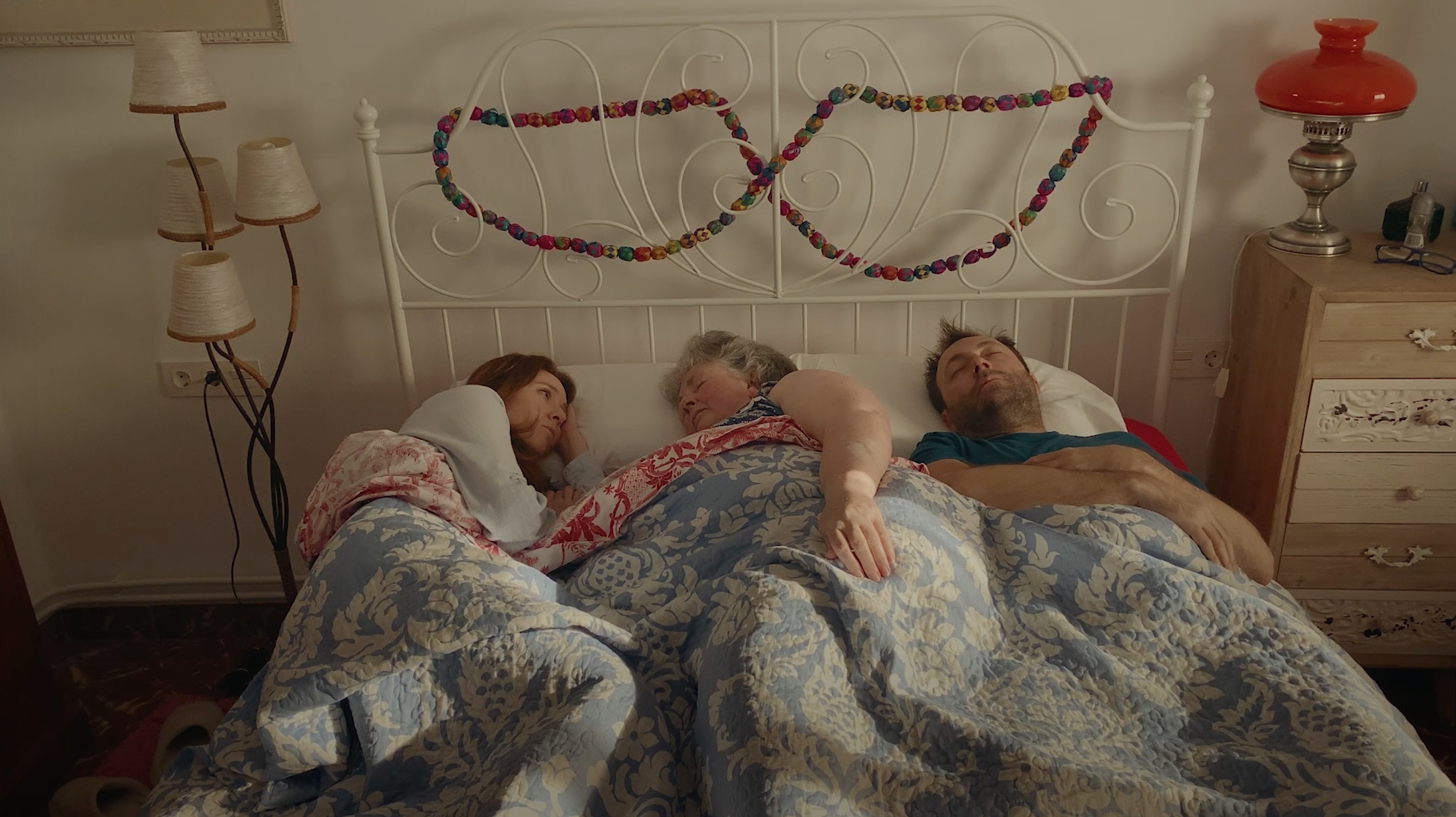
Maria Albiñana: Normally we tend to live our lives in general putting pressure on ourselves because we think people or work expect something from us. That pressure was taken away when we were in lockdown because no one expected anything from us. We were just supposed to be home and keep breathing. I think that for a lot of people it felt like a relief. For others who were alone, it was very tough, and I think Cancelled became like a companion to all these people.
die Seriale: For those people your series might have been a little ray of sunshine. We would really love to talk a lot more about the series and the whole meaning of it, but we do have some questions for your cooperation partners screen Australia and UN3. So, we would move on to those. First of all, could you tell us something about screen Australia and your cooperation with them?
Luke Eve: Yes, so screen Australia is a government body in Australia who I’ve been lucky enough to have a nice relationship with over the last decade. They’re an amazing entity that has been set up to fund not just production, but development. They try to support Australian storytelling. They’re very forward thinking and do not just support TV- or moviemakers, but also online content. They’re all about storytelling regardless of the platform, and they’re incredibly supportive. I was lucky that they’ve supported a couple of projects, that we couldn’t have made without them. Now they’ve come back on board for the next series as well. So we’re really thankful.
die Seriale: So do you think that such a support from the government is important for the industry of web series especially?
Luke Eve: Yeah, I do. I’ve travelled a lot and went to many web series festivals. Countries like Australia, France and Canada produce amazing work and I think it’s no coincidence that they have government funding who supports film makers in both: development and production. In other countries it is more difficult. Money doesn´t always make a better show. It´s more about supporting. Screen Australia weren’t just about giving us money. We made the show with them. We could send them the scripts and they would give amazing Feedback. They become like a creative partner. So again, it’s not just getting money, it’s about actually working with a support network, that shows in the quality of Australian web series for me.
Maria Albiñana: Also, it puts the creators on a test because you have to apply. If your show is bad you’re not going to get through it. Talking here as a festival director there are very good shows, but I also see very bad shows. I think people that make bad shows sometimes have not been put through the test. When you start in screen Australia, maybe your show will not get picked on the first time, but they tell you how to make it better. It’s a bummer, that in Spain we don’t have that. We just have it locally and in very small amounts. But it’s not the same and you can totally tell because there’s a lot of talent. But the problem is that you also need training.
Luke Eve: You´re totally right. It is interesting that you say that because part of the application process for Screen Australia is that they ask you questions and you have to give very detailed answers about: “what is your series? who is the audience? What is the market?”
Maria Albiñana: And that makes you think about show deeper.
Luke Eve: You might just be able to go out there and make something, but I think if you’re not thinking about who this is for and how you’re going to get it and attract an audience, then probably you will fail. It’s one thing to make something, but then you must try and attract the right audience for it. Screen Australia through its stringent processes make you think about that. They make you better as a filmmaker because they make you pitch; they make you think.
Maria Albiñana: They make you think about who’s going to watch it, and a lot of shows a lot of creators don’t do that. They just go like: “No. I want to create ‘cause I’m creative.”, but maybe no one wants to watch it. As a creator, you’ve got to think about your audience.
die Seriale: Thank you Luke and Maria. Those were some pretty good points that gave some advice to people who want to start producing their own series.
Maria Albiñana: And if you don’t have a government support that you can take it to, just take it to professionals that are above you. So that they can give valuable Feedback and support. That is important. Just don’t only take it to your friend.
die Seriale: Besides screen Australia you also work together with UN3 from Argentina. How did it came up that you also work with them?
Luke Eve: It was funny because we both had a relationship with them. They were aware of Low life and High life. My two previous series and I had reached out to them to do a Co-production. When we were trying to finance Cancelled, which was another thing that was happening in the space of eight days, we were thinking about where we can get some additional money. Because like I said, we had to turn our back on Television networks. We both thought that UN3 would be a great Collaborator because of the Spanish language and the fact that we already had a relationship with them. Also, they were going into lockdown too. They were the perfect partner and it worked out fantastically, because they were online and they were able to move quickly. They are not like a traditional network, so they were able to move as fast as we were. It’s kind of ridiculous that we would send them an email and say: “hey, we’re about to make a show and it’s going to come out in two weeks and we need you to do all this work” and they wrote straight back and went: “Yeah, we can do that with you. That’ll be amazing.” I loved that they were just so responsive and wanted to get involved. It worked out fantastic.
die Seriale: And now you already are on Season 2 of Cancelled. What can we expect in reCancelled? Could you say something about it without giving us a huge spoiler?
Maria Albiñana: I’m just gonna say that reCancelled is not not going to be what people expect.
die Seriale: What a good teaser, that makes us curious about the next season. We’re going to leave it like that. I have one last question that also refers again to the pandemic situation. Which experiences did you gain through filming during a pandemic and which experiences or advice that you got helped you during the pandemic?
Luke Eve: I think it was an interesting time for me because I had just finished making a feature film which was my dream as a filmmaker. It wasn’t a massive film, but there was a lot of cast and crew and we had trucks and big toys. Then suddenly here I am in an apartment locked down with my fiancé and mom and I’m making a series on this mobile phone. It was so suddenly: I’ve gone from this huge production down to this small one. What was great about it was that it made me get back to my roots as a filmmaker. It makes you think about the key elements to what filmmaking or storytelling is all about. At the end of the day, you don’t need big trucks or lots of money. Those things are nice, but you just need a good story and good characters. The pandemic kind of taught me that. I think we’re all kind of learning of the pandemic situation
Maria Albiñana: For me it was all new ‘cause I’ve never been behind the camera. I’m an actress so I tend to be in front of the camera. I have directed a theater on stage and a musical, but that’s different. Everything was new to me in a way. Luke had to teach me a lot. Now I think more about the camera framing, eyelines and lighting. I really enjoyed being behind the camera a lot. It was fun. I think Luke learned a lot from me in front of the camera. We made a good team there. And I learned to have a lot of patience. We did a lot of takes because sometimes I was holding the camera while Luke was talking to a corner and pretending to speak to me. Or the other way around. It was a challenge as an actress to kind of act opposite nothing a lot. I don’t know how we did it, I guess because we know each other pretty well and that helped.
Luke Eve: At the beginning I was director, actor, cinematographer. I had to worry about everything because I had to sort of train Maria and my mum how to use the camera. By the end Maria was like: “Give me the camera give. I want to shoot this.” I learned a lot about acting, I had never acted properly before, so for me that was like a huge learning curve. As a director, my favourite part is working with actors anyway, so I was always very respectful of that craft and made sure I created an environment where actors sort of thrived. But it did teach me a lot as a director how to work better with actors having had to do it myself.
die Seriale: Thank you for those answers. I think they round the whole thing up completely perfect like for example when we talked about screen Australia and how good it is, that screen Australia puts you in a test or challenge. Maybe the pandemic also did that with your work, so that you learned a lot of new things and maybe we all can take such good things even out of that kind of a bad situation.
The Interview was held by Celina Schmitt
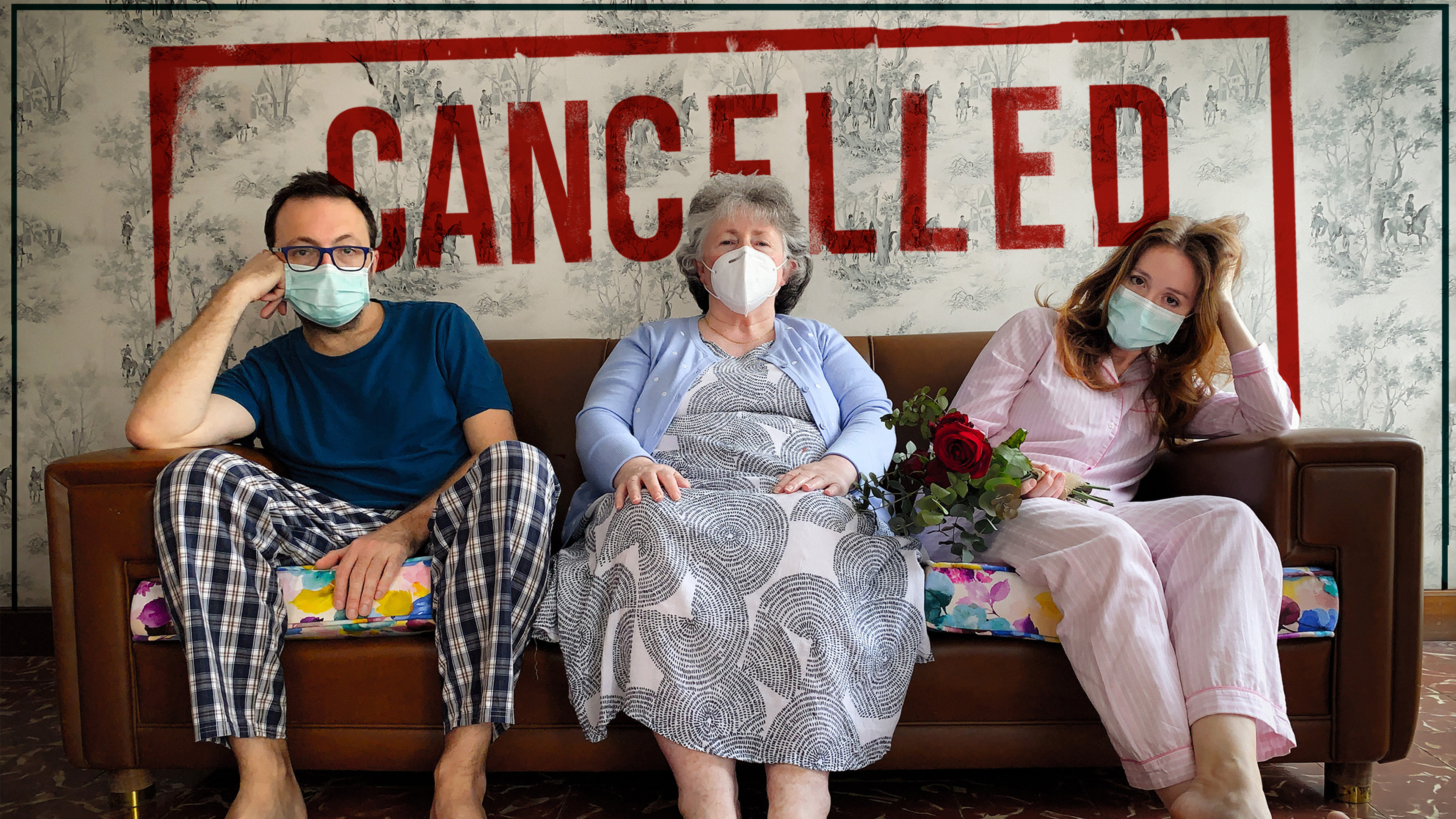
Cancelled
Country: Australia
Genre: Dramedy
Runtime: 01:36:31
Director: Luke Eve
Writers: Maria Albiñana & Luke Eve
Producers: Maria Albiñana & Luke Eve
Cast: Maria Albiñana, Luke Eve, Karen Eve
